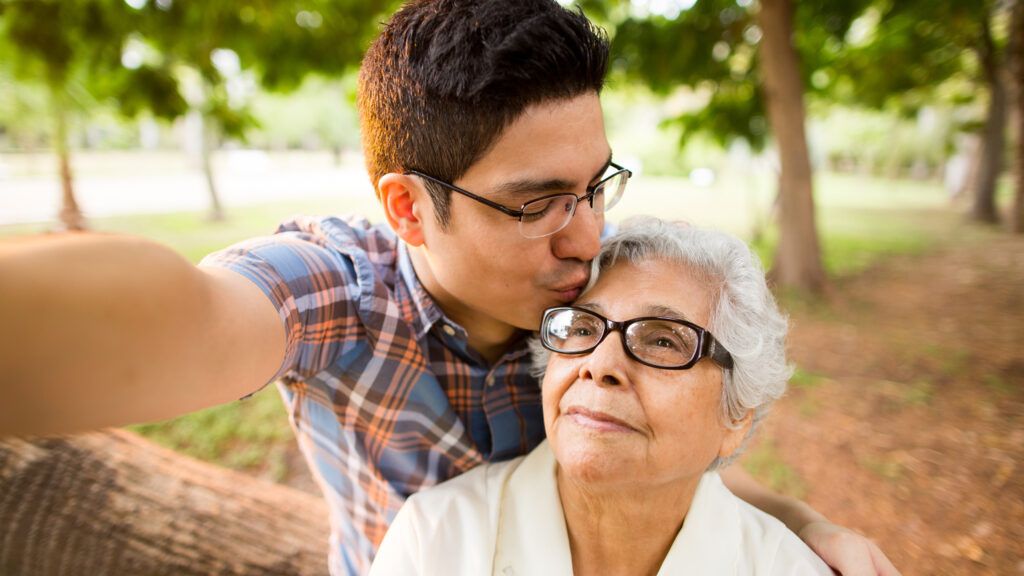Julie Hayes is the Content Manager at Benjamin Rose Institute on Aging.
Millennials can face a number of serious stressors: student loan debt, minimal pay, tenuous job situations, providing for young families. Add another stressor to the list: caregiving. This generation now accounts for one-fourth of unpaid caregivers in the country. Each year, in increasing numbers, they take on the personal, emotional and physical care of their loved ones. Many are doing so while still in school or having joined the workforce for the first time—often with more than one job. On top of this juggling act, millennials are also less likely to communicate their needs as caregivers with employers, which can have negative impacts on their mental health and job performance. But the good news is that a number of organizations are forging the way toward providing support to young caregivers.
Who is this new generation of caregivers?
Millennials, individuals born between 1980 and 1996, represent about 10 million of the total 40 million unpaid caregivers in the US, a number that is expected to sharply increase as the population of older adults over the age of sixty-five doubles over the next generation. According to AARP, about 35 percent of these millennial caregivers are ages 18 to 24, 34 percent are ages 30 to 34, and 31 percent are ages 25 to 29. 47 percent of millennial caregivers are male, which is about a ten percent increase from previous generations.
The same report also details some of the financial characteristics of millennial caregivers. 73 percent are employed and have at least one job, and 54 percent earn at or below $49,999 annually, with 11 percent earning under $15,000. On average, 27 percent of a millennial caregivers’ out-of-pocket income is dedicated to caregiving expenses.
Why it’s hard for millennials to balance work and caregiving
Because many millennials are entering the workforce for the first time, it can be particularly difficult for them to balance work with caregiving. This is a common issue for caregivers of all ages, but it can be an even greater challenge for millennials, as they seek to establish themselves professionally. Job uncertainty can make millennials more unlikely than older workers to discuss their needs with employers. According to AARP, while 60 percent of older caregivers inform their bosses and supervisors of their caregiver role, only 46 percent of millennial caregivers do so.
At the same time, their responsibilities as caregivers greatly affect their work, whether or not they have filled their supervisors in. Around 39 percent of millennial caregivers arrive to work late or have to leave early due to their caregiving responsibilities, and 14 percent have to reduce their work hours entirely. If employers are unaware of the reasons behind their employee’s absenteeism, this may also lead to severe warnings, cuts to salaries, demotions or even termination.
The stress of facing these possible consequences in the workplace can pile up and contribute to a millennial caregiver’s sense of burnout and depression while negatively impacting their work performance and productivity. Even those who communicate their needs to their boss may discover that their workplace lacks support for caregivers and is inflexible in regards to time off and changes in schedule.
Other Challenges for Millennial Caregivers
The typical caregiver model is a middle-aged or older female who years ago graduated from school and established herself professionally. Programs and policy tend to be designed around that image rather than that of the millennial caregiver, who is not only younger, but is just as likely to be male as female. Many caregiver resources and support systems don’t provide solutions to student caregivers trying to earn their degree, or offer funded respite care that is accessible to younger adults.
Most millennials are used to being made the butt of jokes by the media for the perception surrounding them of being self-absorbed and unaccustomed to ‘real responsibility,’ but not being taken seriously can have a negative impact on millennial caregivers. Many feel as if they cannot have serious health discussions with their loved one because they are afraid of being treated like a child or being seen as too uninformed to provide real help. Many are also anxious about navigating resources and communicating with health care professionals, afraid that they will be looked down upon, or not be taken seriously as a decision-maker for their loved one if they ask questions (Elder Options of Texas (2018) Challenges Faced by Millennial Caregivers).
Support for Millennial Caregivers
Waiting for the status quo to shift does not help millennials who need support immediately. However, a groundswell of organizations are leading the charge to embrace and serve the needs of younger caregivers. If you are a millennial caregiver, or know of someone in this challenging position, you may want to check into these resources:
· AARP’s Prepare to Care guide for those who are new to caregiving and need advice on communication, finding support and making time for self-care
· Scholarship opportunities for caregivers attending school
· Caregiver forums and support groups for young adults, such as those available on The Caregiver Space
· The American Association of Caregiving Youth, a non-profit dedicated to increasing awareness of issues faced by young caregivers and connecting them to resources
It is important to speak up for yourself. Regardless of your age, you should talk to your employer about your caregiving demands and try to work together at finding ways to remain dedicated to both your career and your caregiving. A number of organizations offer Employee Assistance Programs to help manage difficulties at work and at home, so if this is available to you, you should not neglect to take advantage of it.
Millennials and other young caregivers are often referred to as an invisible or unrecognized group. If you are in this situation, being open about the unique caregiving challenges you face can do much to shine light on the issue and to help others.





